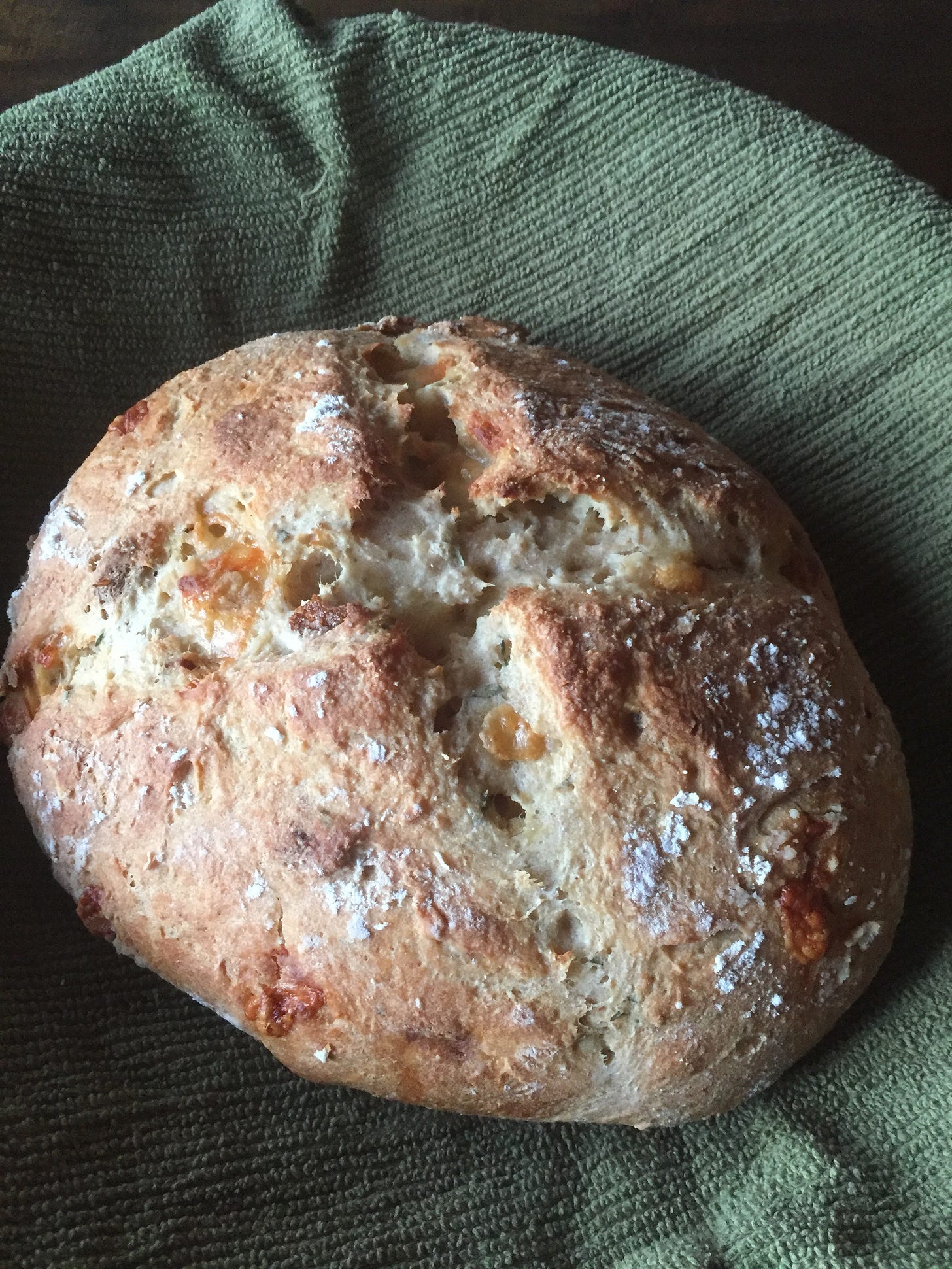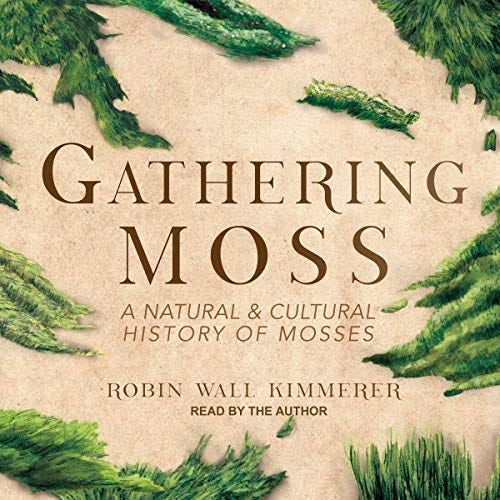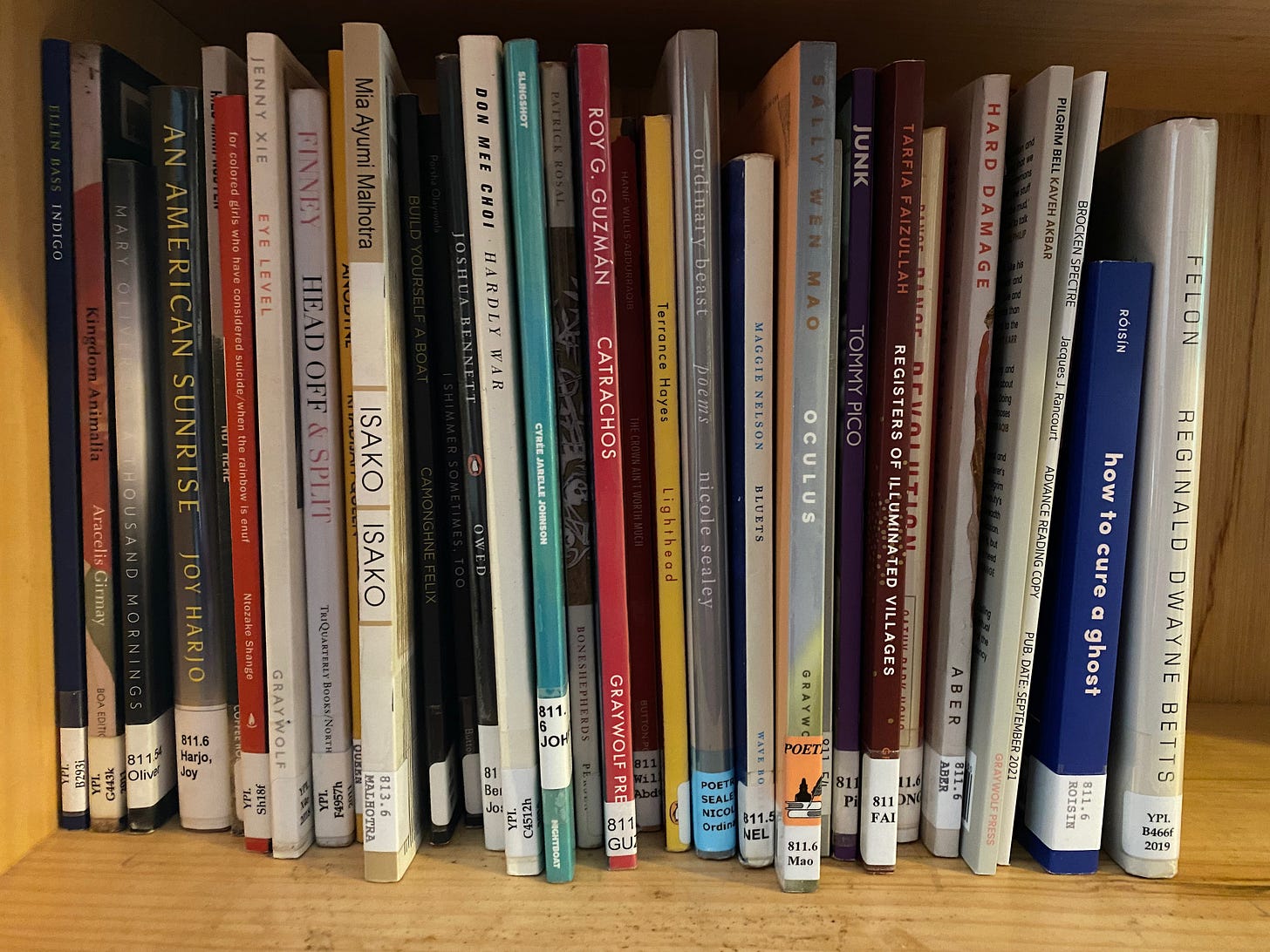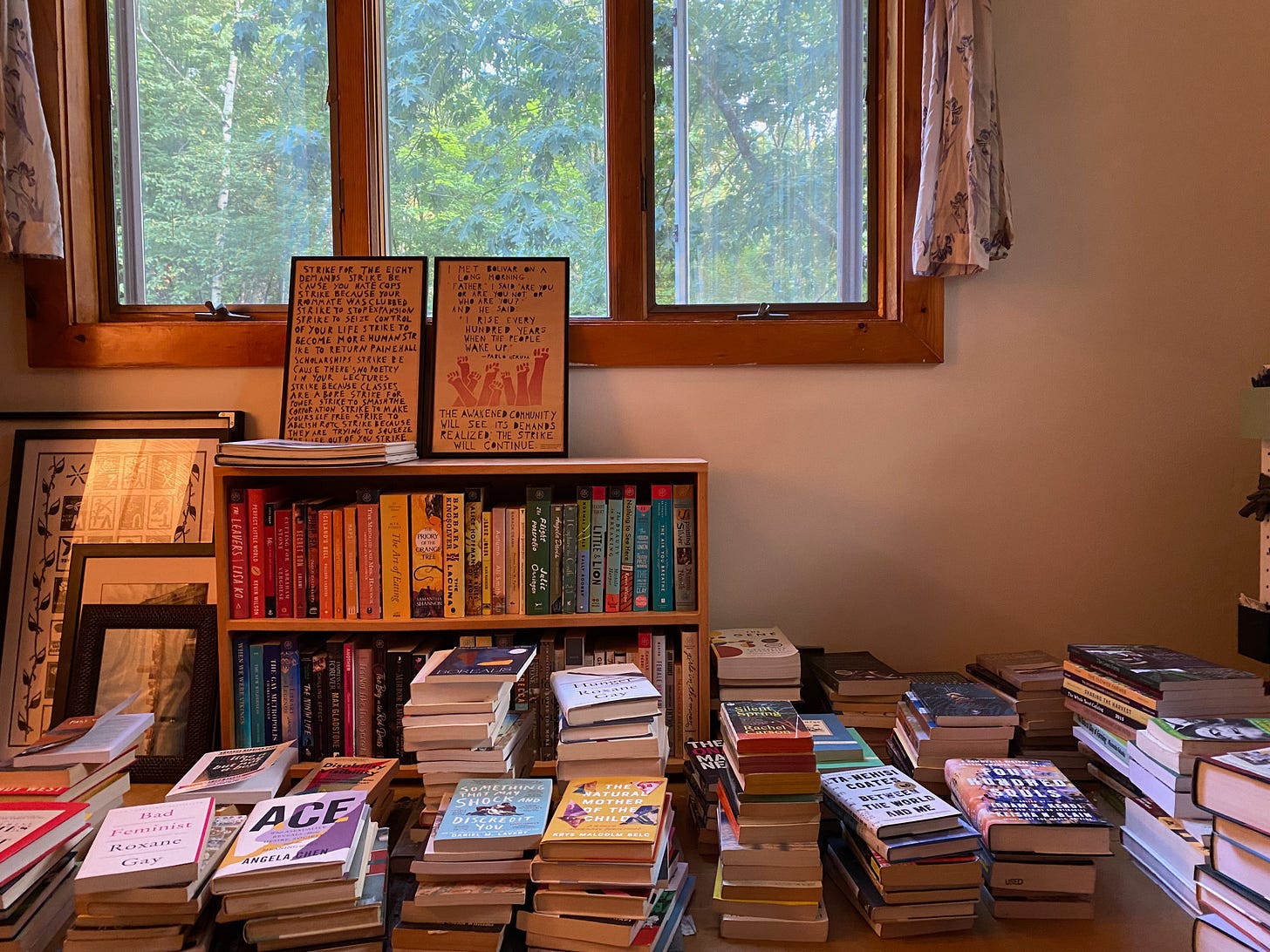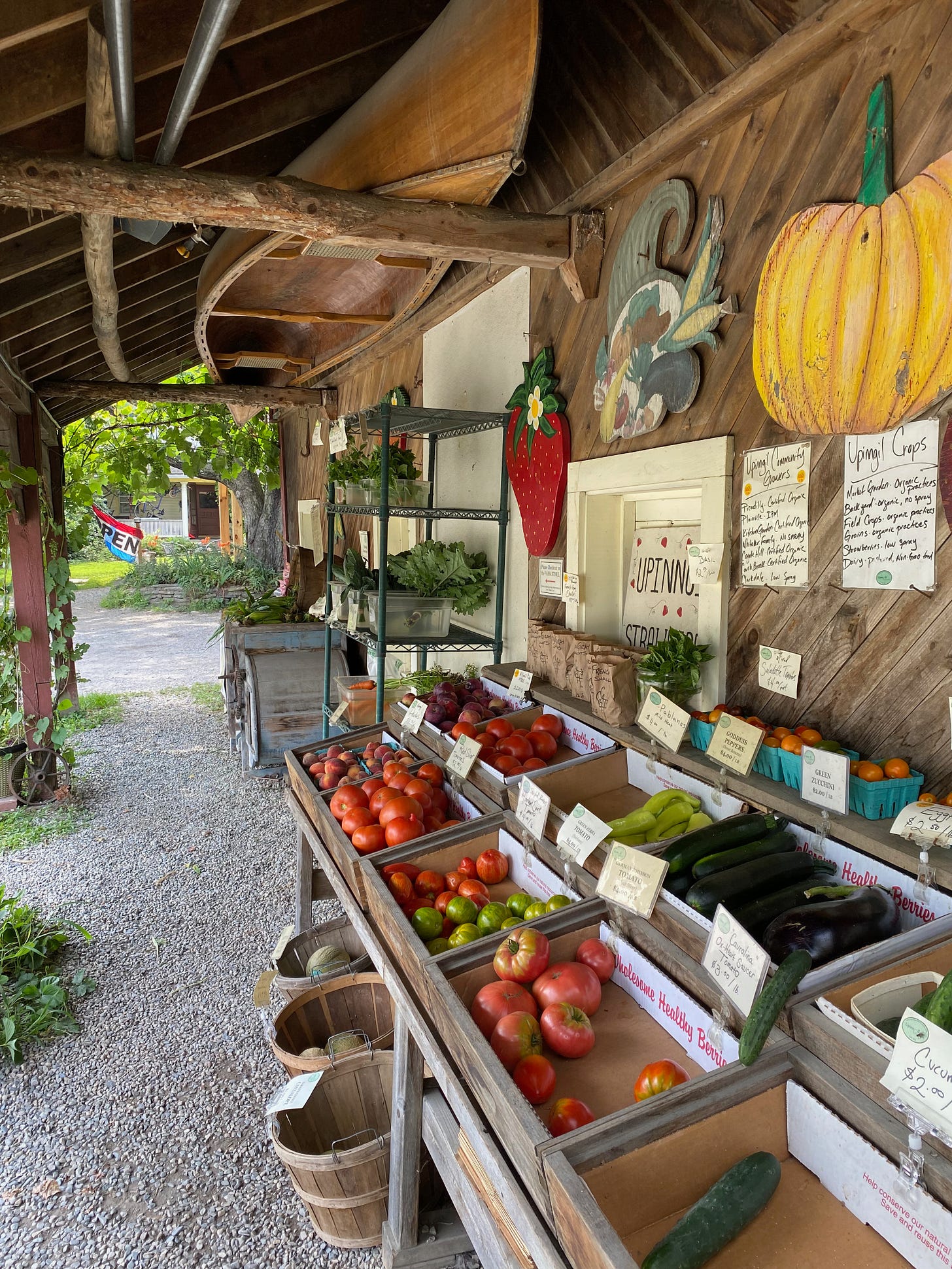Volume 1, No. 22: Bearing Witness + Soda Bread with Figs & Goat Cheese
Greetings, readers and bakers! I was able to rearrange my work schedule to allow for a nesting staycation last week, and I did a whole lot of painting. I now have a bright green bathroom and a bright red hallway and I’m remembering how much I love unpacking and settling into a new place. My office is still covered in piles of books, but I’m excited about actually getting to work in it next week!
This week’s theme arose because after I finished reading The Wrong End of the Telescope, I felt the need to shout about it. It’s a brilliant novel about so many things, but one of them is the act of bearing witness. I love novels about transformation. Often, my favorite books are ones in which characters go through immense change. Books that aren’t about change, but rather about characters simply experiencing the world, witnessing and noticing it, are usually a harder sell for me. But Alameddine hit it out of the park with this one, and I’m going to be thinking about it for a long time.
Happily, two other amazing books about bearing witness came immediately to mind. There’s something powerful about a book that doesn’t seek to explain itself or make itself legible or translate messy, unpredictable lives into neat, understandable stories. In different ways, these three books do just that: they bear witness to the world without categorizing or translating.
The Books
Backlist: Real Queer America by Samantha Allen (Nonfiction, 2019)
This book is a wonderful blend of memoir and journalism, which is something I love. It’s also a book that pushes back against one of the most frustrating stereotypes about queer people: that we all live in cities and/or liberal areas.
Samantha Allen is a trans reporter who spent many of her formative years living in conservative cities and cities in the middle of so-called red states. And while she encountered transphobia and homophobia and other challenges while living in those places, she also found queer community and a lot of joy. So she set out to write a book about the queer and trans folks living outside of major liberal cities, in the places we don’t typically think of as queer places. It’s a collection of interviews, a road trip story, and a memoir about her own life.
As she travels across the country, visiting with queer and trans people in Utah and Tennessee and all over the Midwest, she shares her own story: coming out as trans in her twenties, meeting and falling in love with her wife, the ways that cities such as Salt Lake and Atlanta have shaped her as a person, and continue to influence how she relates to queerness.
As her story unfolds, she shares the conversations she has with the folks she visits. She speaks with the owners of a queer bar in Bloomington, Indiana, the trans mayor of a small town in Texas, a Mormon trans man in Salt Lake, queer community activists in the Rio Grande Valley, and many others. It’s warm and celebratory and there’s a real sense of queer joy running through it. The people she speaks with talk about the challenges they face, but mostly, they talk about what they love about the places they live: their families and communities, the work they’re doing. They talk about why they’ve chosen to live where they do, how these small towns and cities and rural areas nourish and sustain them.
I’ve seen some critiques of this book, mostly because Allen doesn’t delve into the harsher realties of being queer in conservative states and small towns. She’s also fairly critical of big cities such as San Francisco and New York, and the queer and trans communities that exist there. I understand where these critiques are coming from. I live in a rural area, but it’s a super liberal rural area, and the nearest big town is the queerest place in Massachusetts. I don’t know what it’s like to live in a state with a government that’s trying to deny my right to exist. So many queer and trans people who grow up and/or live in the South or Midwest experience a lot of queerphobia and violence.
I don’t think Allen is trying to minimize those realities. She’s not saying that the South is perfect, or that queer people don’t experience violence there, or that there’s no reason a queer or trans person living in a conservative place might want to leave. What she’s doing, instead, is bearing witness to a reality that’s rarely acknowledged. The rhetoric around queer lives is so deeply steeped in cities. The dominant narrative, in books, film, and television, goes something like this: queer person gets the hell out of their small town and finds refuge in the nearest big or liberal city. Stereotypes about the South and how hard it is to be queer there are all over the media. Allen’s book counteracts that narrative and those stereotypes. There are plenty of books out there that bear witness to how hard it can be to live as a queer person in a conservative place. As there should be. But how many books are there about queer joy in Indiana? How many books have you read that celebrate the trans community in Salt Lake City? How much do you know about queer activism in the Rio Grande Valley?
I appreciate how positive Allen is about the places she visits, and I appreciate that she’s willing to criticize liberal cities. I love that this is a book that bears witness to joy. It’s an informative and interesting read, but more than that, it’s joyful, sometimes outrageously so. We need more books like this, books that purposely focus on the good stuff, the victories, big and small, the daily pleasures, the happiness and fulfillment and good work and affirming community that queer people who love Texas and Tennessee and Utah actually experience. Queer life — anywhere — isn’t simple, and it’s not a monolith. Through her own stories and the stories of others, Allen gently reminds us of that. Delight exists alongside pain.
Frontlist: Dog Flowers by Danielle Geller (Memoir)
This is not an easy read — it’s often bleak, and deals with a lot of trauma. It’s about addiction and alcoholism and the violence they can wreck on families and children. It’s a book about childhood trauma and abuse. It’s about inheritance — of culture, of pain, of memory, of stories. It deals with abuse and neglect. It’s not a book to enter into lightly.
It begins with the death of Geller’s mother, who, after being houseless for a stretch, dies from complications due to alcoholism. Geller’s relationship with her mother has been strained and difficult for years, and after her death, she begins to delve deeper into her family’s history. She revisits her own past, as well as her mother’s, eventually returning to the Navajo reservation in New Mexico where her mother was raised, and where she herself was born. Visiting and reconnecting with her mother’s side of the family doesn’t provide closure; it’s not a simple, linear story. But it does offer a glimpse into the work of forgiveness and healing.
Geller is an archivist, and she approaches this memoir as an archivist might. There are photos of her mother’s belongings scattered throughout — photographs, notes, job applications, ephemera. She uses the objects to piece together the story of her mother’s life and her own. Her writing, too, is clearsighted and precise. It feels like a kind of archive. The prose is beautiful. Geller capture moments and memories, and then strings them together into a story that is more complex than each of those moments alone. It’s such a honest, open way to explore a life. It’s like she’s laid out all the facts in front of her, moving them around with her hands, puzzling them together: her father’s alcoholism, her mother’s estrangement from her Navajo family, Geller’s own childhood with her grandmother, her strained relationship with her sisters, her career as an archivist.
A lot of memoirs move from one point to another. In many ways, this feels like a book told from the middle. There is no easy resolution. There isn’t any resolution, really. This isn’t a book about what happened, and what it means. Instead, it’s a testament to a life, a witness to pain, a collection of truths —brutal, beautiful, challenging, redemptive. It’s an archive, and archives aren’t necessarily about creating meaning, but about bearing witness. Geller has written a gorgeous book that bears witness to a life. It’s moving and painful, honest and open-ended. It’s still going on.
Upcoming: The Wrong End of the Telescope by Rabih Alameddine (Fiction, Grove Press, 9/21)
Look, I’d really like all of you to read this book as soon as possible (it’s out in a month!), because I need some book people to discuss it with. I finished it a few weeks ago, and I loved it, and I've been thinking about it often ever since. The more I think about it, the more impressed with it I get. All its various meanings and ideas and themes keep changing and shifting in my brain. I'm sitting here trying to gather my thoughts for this review, and they are flying everywhere.
The story is about Mina, a Lebanese trans doctor who’s been living in the US for many years. She’s happily married and lives a comfortable life in Chicago; she a successful surgeon and an out queer trans woman. At the request of a friend, she decides to spend some time volunteering on Lesbos, to offer what aid she can to the refugees pouring in every day. She leaves her wife and arranges to meet up with her bother, who flies in from Beirut, on Lesbos. It’s the closest she’s been to Lebanon since she left for medical school.
There is so much going on in this novel. It unfolds in short chapters, in which Mina navigates daily life among the refugees, attempting to make sense of an impossible, overwhelming situation. She often recounts single moments, stories she hears, small scenes. It gives the book an immediacy that makes it hard to put down.
Mina ia an American by choice, having lived in the US for most of her adult life, but she’s also Lebanese. In the camps, she encounters white American volunteers, many of whom are there to have some kind of transcendent experience, performing help instead of actually helping. She herself is an immigrant. She’s not a refugee, though she left Lebanon in part to live a safer openly queer and trans life. She forms a deep connection to one particular Syrian refugee and her family. She speaks Arabic and feels distinctly separate from the white volunteers, and yet she has something in common with them, too. Alameddine’s exploration of the messiness of all of these identities, of existing both within and outside of communities and cultures and places, is startling. There is so much blurriness. Mina, and the people she meets, all exist in liminality. They are all between things — homes, lives, selves.
Mina’s friend Emma is also trans, and they befriend a gay Palestinian nurse. I found it so refreshing to read a story centering queer characters in a space that is not explicitly queer. Mina’s transness is integral to who she is, and Alameddine doesn’t gloss over it, but it’s not central to this story. She is assured and funny, sometimes cynical and sometimes hopeful. Her narrative voice is superb, so very much itself. I could have read hundreds more pages of her narration. She’s smart and observant and darkly funny.
The most astonishing parts of the book, though, are the sections in which Mina addresses an unnamed gay Lebanese writer. It’s clear that this character is a stand-in for Alameddine himself, though he’s not named on the page, and so I won’t name him, either. This is someone who Mina has long admired, whose work has meant a great deal to her. Eventually, he shows up at the camps, and their paths cross. Their relationship is at the heart of the story.
I am always hesitant about books with trans main characters not written by trans writers, but Alameddine won me over. He does use Mina’s deadname (twice, I think), which could have easily been avoided. But it’s clear there is so much of Alameddine in Mina. He is also queer, and he also immigrated to the US and has made his life there. He’s of Syrian and Lebanese descant. At times, when she is speaking to the unnamed writer, it feels like he’s having a conversation with himself. It’s so tender. Reading this book often feels like trespassing on a conversation between two old friends, two people whose lives have taken similar trajectories, and who have found refuge in each other, especially when they have not found refuge elsewhere in the world.
I can’t stop thinking about this passage, in which Mina speaks to the unnamed writer about the purpose of storytelling:
Did you believe that writing about the experience would help you understand what happened? You still cling to romantic notions about writing, that you’ll be able to figure things out, that you will understand life, as if life is understandable. When has writing explained anything to you? Writing does not force coherence onto a discordant narrative. You knew that, you told me that. But still, you thought this novel would be magically imbued with your dreams of respite. Even though none of the previous novels you wrote helped you in any way, this one, you thought, would heal your pain. Like a faithful analysand, you believed if you worked hard, wrote long enough, you'd come across the clue that would unravel the puzzle, the one key that would unlock your mystery. Keys, if they even exist, darling, are not found in literature.
This book asks so many unanswerable questions. What does it mean to “help”? How does cultural identity shift over time, and in different places? What are the ethics of offering aid, and how can we do so truthfully? But underneath all that, it’s about stories, and why we tell them. It’s not a transformative book. Mina doesn’t learn any lessons. Her experience does not change her. The unnamed author sets out to learn something, to become someone new, and yet he doesn’t succeed. Rather than cheapening a complex story by “forcing coherence” onto it, Alameddine simply bears witness. It’s a book about existing in the midst of impossibility. It’s about the limits of art — and, maybe, in exploring those limits, it’s also about the possibilities of art.
The Bake
It’s always fun coming up with recipes to go with each week’s theme. Sometimes I know exactly what I’ll bake. Sometimes I have to think about it for a while. This week’s recipe is a variation on soda bread, which is about the easiest bread you can bake. Bread, to me, feels like a way to bear witness. It’s something you bring to friends when they need support. It’s basic, comforting, steady.
Soda Bread with Goat Cheese, Figs, & Fennel
This recipe is inspired by the soda bread that Tamal made in….I have no idea which season of The Great British Bake Off, whichever season he was in. It was one of those recipes that I knew I would have to try immediately. I love the combo of tangy goat cheese, sweet figs, and zesty fennel seeds. My notes on this recipe (yes, I keep a baking spreadsheet) say: “everything about this bread was perfect.”
Ingredients:
300 grams (2 1/2 cups) all-purpose flour
150 grams (1 cup) semolina flour (if you don’t have any, using all AP is just fine)
1/2 tsp salt
3/4 tsp baking soda
1 1/2 tsp toasted fennel seeds
190 grams (about 8-9 individual) dried figs, chopped small
4 ounces goat cheese, broken into large chunks (I like a multi-textured goat cheese in this, like Humboldt Fog)
1 1/2 cups buttermilk, plus more as needed
Preheat the oven to 450. Butter a baking sheet or line it with parchment paper.
In a large bowl, whisk together the flours, salt, baking soda, and fennel seeds. Make a well in the middle and pour in the buttermilk. Using your hands, mix the dough, pulling in the flour from the sides of the bowl. It should be soft, but not too wet. Scatter the figs and goat cheese on top and give it a few more mixes with your hands to incorporate them.
Turn the dough out onto a floured surface. Knead it lightly for a few seconds — be gentle. Pat it into an oval about 1 1/2 inches thick. Transfer to the prepared pan. With a sharp knife, cut a deep cross on the top of the dough, reaching all the way out to the sides.
Bake for 15 minutes, then reduce the oven temperature to 400 and bake for 30 more minutes, until the bread is golden brown on top and the bottom sounds hollow when tapped. It is delicious warm and slathered in butter.
The Bowl and The Beat
The Bowl: Roasted Potato & Green Bean Salad with Corn & Mozzarella
I was so excited to find new potatoes in my CSA share last week, because it means I can start making this salad every chance I get! It’s one of my summer favorites. Roasted potatoes and beans, fresh corn, and mozzarella is a perfect combination. I often dress it with pesto, though I didn’t have any around this time, so I made a garlicky mustard dressing instead.
Slice 3-5 medium potatoes into wedges. Spread them on a baking tray with plenty of olive oil, salt, and pepper. Wash and trim some green beans (or yellow wax beans), about a quart’s worth, and spread them on their own baking tray — olive oil, etc., you know the drill. Roast the veggies at 450; the potatoes will take about 25 minutes, but the beans only need 10-12. Meanwhile, cut some corn off the cob (I used six ears because that’s what I had, but the corn to potato ratio was a bit too high, so 4 is probably better). Cube some fresh mozzarella. Slice up some basil. If you have cherry tomatoes, slice a bunch in half. Dump it all into a big bowl. Add the roasted veggies. Make a quick vinaigrette with mustard, olive oil, sherry vinegar, a pressed garlic clove, and salt. Toss it over the veggies and mix well.
The Beat: Gathering Moss by Robin Wall Kimmerer
I’ve been wanting to listen to this one ever since reading to Braiding Sweetgrass, but it took months for my Libby hold to come in. I just started it yesterday, and, to no one’s surprise, I’m loving it. Kimmerer is such a generous, attentive writer. She’s also a brilliant narrator. Her voice is so expressive and emotional. Her wisdom, her passion for the natural world, and her wonderment all come through in her voice. It’s soothing and inspiring at the same time. Also: mosses! She has an incredible talent for looking closely at something from many angles, and celebrating it, both for its own sake, and for what it can teach us about ourselves, each other, the world.
The Bookshelf
The Library Shelf
Today is Day 11 of The Sealey Challenge and I am loving it so far. My library shelf is out of control, as are my holds. At the moment, I’m enjoying pretending that I own all of these beautiful poetry books. At the same time, I’m delighted that my library network has so many amazing books of poetry for me to borrow!
The Visual
I’ve finally started unpacking my books! The floor of my office is currently covered in stacks, and sorting them is bringing me a lot of joy. I’ve gotten rid of several boxes of books in the last year, mostly ones I’ve been lugging around since high school and no longer have any interest in reading. So, for the first time ever, I have enough shelf space! Figuring out how to organize my library across four different rooms is a fun challenge.
Around the Internet
On Book Riot, I made a list of 15 Amazing Indigenous Instagram Accounts to Follow (get ready for a TBR explosion) and I also wrote about some of my favorite queer books that explore place, nature, and the environment. And if you’re a spreadsheet and/or data nerd, you might enjoy this piece I had a whole lot of fun writing: A Tour Through Readers’ Goodreads To-Read Shelves.
Now Out
Hooray! Cheer Up by Crystal Frasier and Val Wise is now available! In case you’ve forgotten what it’s all about, you can read my review of this joyful queer graphic novel here.
The Boost
A collection of small things that bear witness to the pain and beauty of the world:
I discovered this artist thanks to a friend and I am now obsessed.
Chen Chen (author of the brilliant When I Grow Up I Want to Be A List of Further Possibilities) has a Twitter poetry journal, the Lickety Split, that publishes poems that fit in a single tweet. I find it a bit difficult to find the poems among all the other tweets (and I’m not actually on Twitter anyway), but there are some absolute gems there.
As always, a little bit of beauty to send you on your way: One of my favorite rituals is my weekly visit to Upinngil Farm, where I buy milk, eggs, veggies, and the occasional baked treat. It’s such a sweet farmstand, and my weekly shop there always reminds me to slow down a little.
And that’s it until next week. Catch you then!





